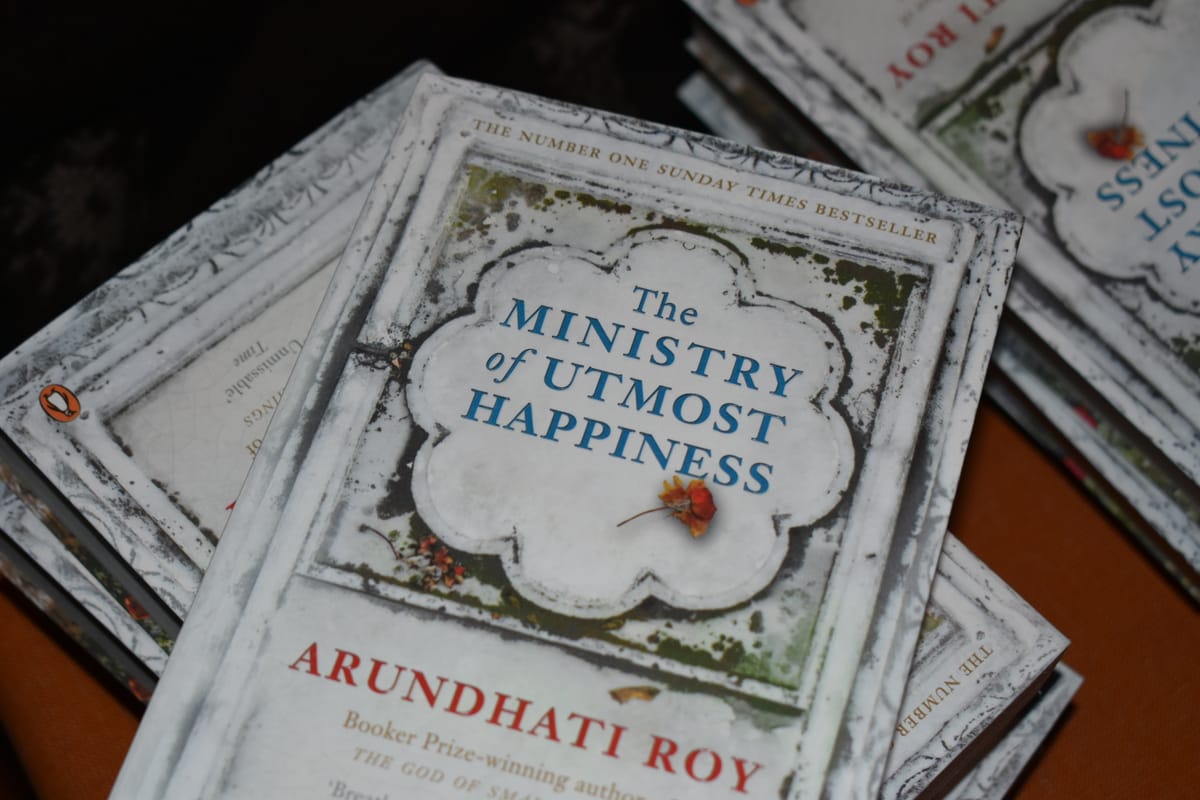Book Review: Ministry of Utmost Happiness

Twenty years after the release of her Man-Booker Prize winning novel “The God of Small Things”, Arundhati Roy makes her fictional return with the much-anticipated “Ministry of Utmost Happiness”– and it does not disappoint. A novel with a non- sequential plot, multifarious characters and prose that is both breathtakingly powerful and absurdly funny. Roy weaves the story between the tight dusty alleyways of old Delhi and the magnificent snow-capped mountains of Kashmir.
In the first half of the tale we are introduced the Anjum, a ‘hijra’ (in this context, translated as hermaphrodite). She lives in the Khwabgah which she translates as ‘the House of dreams’ with other members of the Hijra community. Anjum is written boisterously and beautifully until tragedy strikes on a visit to a shrine in Gujarat. At this point the tone of the novel shifts as she literally sheds her bedazzled feminine garments for something more traditionalist.
We are soon transported to Kashmir, perhaps the most exquisite valley on Earth, where a territorial dispute between India and Pakistan is on-going. We see this through the eyes of Tilo, an activist (who seems to be modelled on Roy herself) and the handsome Kashmiri militant Musa – an unconventional love story to say the least. Although the landscapes noted above are the two main foundations of the story (Delhi and Kashmir), it is certainly not limited to just them. Roy manages to cover every major political movement within India and does so with creativity and righteousness. Through the stories of a handful of individuals, most major atrocities within the state are covered, thus reiterating the core message of the book: the personal is political.
My only contention with the novel is that I would’ve liked it to have been two separate books altogether – it often felt as if the two main segments of the story were too powerful to have been constrained to the same binding. Although perhaps this critique is a testament to Roy’s whimsical storytelling abilities; the reader is always left hungry for more.
AMMARA FIRDAUS, BA INTERNATIONAL RELATIONS AND HISTORY
Check out our Feature piece covering Arundhati Roy’s visit to SOAS in the Societies and Sports Section



